Unique Seattle group fights loneliness and climate anxiety 一 with a new downtown home
January 7, 2025
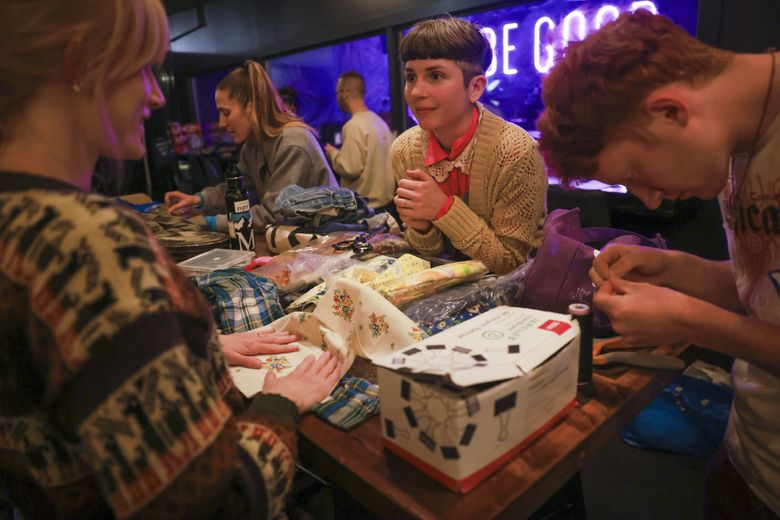
“Find friends who care about stuff,” advertised a colorful sign outside a cafe on First Hill last fall.
Around 35 event attendees followed the arrows pointing them into Anchorhead Coffee where they spent the evening eating a catered Thai food dinner, sharing ideas in a lively discussion about sustainable fashion and chatting as they browsed secondhand items in a clothing swap. Printouts spread across tables helped people identify the city council member who represents them and encouraged writing a postcard or email advocating for “better social spaces that promote meaningful conversation and climate resilience.”
The event was hosted by the locally-based nonprofit Soapbox Project 一 or, as the signage out front declared, “Seattle’s most joyful climate community.” Given the laughter ringing through Anchorhead, laid back atmosphere and colorful stickers guests were handed at the door (just for fun), the uninitiated might be surprised that Soapbox was created to address what can feel like two of the heaviest issues of our time: climate change and the loneliness epidemic.
That contrast is part of the point.
Up against such daunting issues and the doom and gloom that can surround them, Soapbox takes an intentionally uplifting approach. The volunteer-run group brings together people who care about climate issues (or are just looking for new friends) for meaningful social experiences, from community dinners to an in-person dating event dubbed “climate cuties,” mixed with bite-sized actions and education, such as writing to local representatives or learning what can actually be recycled in Seattle.
After starting around 2018 with a newsletter (called the “Changeletter”) full of climate action items nearly anyone can take and running dozens of pop-up events, Soapbox has found a new physical home downtown in Belltown’s Slip Gallery, where it will hold events each Tuesday evening throughout 2025. Its team hopes the space will help it create a more consistent homebase for people to “show up as we are,” find a true sense of belonging and become more civically engaged, said founder Nivi Achanta.
The issues it’s addressing 一 climate anxiety and loneliness 一 are both common in the U.S. Among young people ages 16-25, 85% are moderately or very worried about climate change, and about two-thirds feel powerless about it, according to a study published in 2024 in the journal “The Lancet Planetary Health.” Meanwhile, about 30% of U.S. adults feel lonely at least once a week, while 30% of adults ages 18-34 report being lonely every day or several times a week, according to a 2024 poll by the American Psychiatric Association.
People are often drawn to Soapbox either in search of community or to deal with feeling overwhelmed about climate issues, Achanta said. By creating a warm community dedicated to manageable, pro-climate actions, the nonprofit aims to tackle both.
Making climate activism joyful
Like many activists in climate work and social justice, Achanta said, her journey “started with an existential crisis.” While working a corporate job in San Francisco, inequality seemed like the theme of her daily commute, with skyscrapers on one side of the road and people living without shelter on the other. “I just wanted to do something to improve my community and feel like my existence on earth mattered,” she said, but as someone busy with a full-time job, it was hard to figure out how to get involved.
On top of that, “I felt that I was going slowly insane with listening to all of the bad news about societal and environmental devastation,” she said. “I didn’t know what to do about it, and I also didn’t know who to talk to about it.”
When six months of medical leave from work gave her the time, Achanta started compiling climate and social justice action steps that could fit into average people’s daily lives, whether individual changes (such as starting a compost bin) or collective pushes (signing a petition for an environmental policy, for example). That compilation became an email newsletter, the Changeletter, that laid Soapbox’s foundation.
About 8,000 newsletter subscribers and many live events later, making climate action attainable, approachable and even enjoyable is at the root of Soapbox’s work.
“People do things that they want to do,” but “a lot of the narrative around the climate crisis is positioned as sacrifice,” Achanta said. Her question is: “How do we make climate action fit into that category of things (people want to do) and make it pleasant and joyful and fun?”
Possible answers, as explored so far by Soapbox, have involved mixing fun activities with advocacy and focusing on solutions, big and small.
Over the course of 2024, Soapbox has partnered with organizations like Third Act and Rethink Food to hold climate-oriented events, shared some of their organizing frameworks with Climate Voters for Harris-Walz, shared petitions and volunteered at land restoration work parties 一 but members have also gone to the zoo and on hikes together and dressed up for an end-of-year party.
In January, when Soapbox will begin its regular Tuesday gatherings in Slip Gallery, the month’s events will center on the theme “climate futurism” 一 or imagining different possible climate outcomes, often posing the question: What if we get it right? The evening events will include dinners, chances to connect with new people, speakers such as Seattle City Councilmember Alexis Mercedes Rinck, a musical performance and possibly even starting your own creative, climate futurism project (“got a climate fiction novella you’ve been meaning to write forever?” one event description reads).
The proactive, positive approach doesn’t mean that Soapbox members aren’t upset about climate change 一 but for many, it’s a balancing act that requires a dose of optimism.
“You do need to have that sense of urgency and maybe even anger at times,” said Xavaar Quaranto, a Soapbox volunteer coordinator. “But that can’t be your full-time space that you’re operating in, because (you’d) just become emotionally exhausted and depleted.”
Some members say they joined or stuck with Soapbox because of the positivity that makes its events feel good to attend.
Before joining Soapbox, data analyst Sahana Sundar had tried out several other events related to climate or social justice but would often leave feeling more discouraged about the problem. When she found Soapbox and went to an event focused on sustainable finance, it “was a very empowering conversation,” she said. “I think it was the first event that I’d gone to in this space that made me feel better leaving than when I came in.”
Community for community’s sake 一 and to support the climate
At the Soapbox dinner at Anchorhead Coffee in October, Achanta stood at the front of the room, speaking into a mic. She started off the presentation portion of the night by leading an anonymous vote.
According to Surgeon General Vivek Murthy, there are three dimensions of loneliness she explained: intimate or emotional loneliness (longing for a close confidant or intimate partner), relational or social loneliness (yearning for quality friendships) and collective loneliness (a desire for a community of people who share your interests.) With everyone’s eyes closed, she asked the audience to raise their hand for each type of loneliness they experienced.
At a typical event with this thought exercise, Achanta will see maybe a quarter or half the room raise their hand for intimate loneliness, she estimated, half or three-quarters for social loneliness and almost everyone for collective loneliness.
While Soapbox was founded to focus on climate anxiety and environmental issues (and continues to do so), as it’s started holding more in-person and social events, it’s drawn more people looking for community, Achanta said. One of the most common responses she’d get from people reading the Changeletter was the sentiment: “I feel really isolated, because I don’t know who to talk about these things with,” she said.
Creating community, both for its own sake and to support climate action, is now central to Soapbox’s mission.
Some members were drawn to the group for just that reason. Katie Randall came across Soapbox in spring 2024, after living in Seattle for about five years. Some of her friends had “big life transitions coming up,” she said, and “I was just thinking a lot about how to build community and make friends, and recognizing that our social circles are always in flux.”
It seems like “Seattle is a city of introverts, which I am definitely guilty (of),” and it can be hard to find physical spaces for community building outside of work and school, she said. She likes that Soapbox nudges people to chat with those they don’t already know, whether by mixing up the audience so everyone’s sitting by someone new or providing conversation starters.
For Soapbox, there’s another benefit to these new connections: a strong community can better battle climate change.
For starters, it’s a space to exchange ideas and share expertise. T Parent, who founded Reforme U, which offers education on sustainable fashion, found people through Soapbox who could provide helpful feedback on the online platform, for example.
A trusted, supportive community can also be a buffer against the challenges of climate work. “You always have that interpersonal friendship to fall back on, even when the actual mission might become daunting or difficult or frustrating,” Quaranto said.
Plus, “we are social creatures,” Achanta said, and it’s easier to fight for a cause when you’re surrounded by people who also care about that cause.
“I honestly think that more conversations, and maybe every conversation, about climate solutions has to touch on the community piece,” she said.
Achanta hopes the consistency of holding weekly gatherings at Slip Gallery will make Soapbox a “true third space” 一 a place beyond work or home where people can come as they are, on good weeks or bad, and find a sense of belonging, as well as taking actions to protect the climate.
“2025 will contain a lot of unknowns … We don’t really know what to expect in the new year,” Achanta said. “But at least this one thing, every single Tuesday, will exist for people to show up to, and I think that makes a huge difference.”
Search
RECENT PRESS RELEASES
Related Post
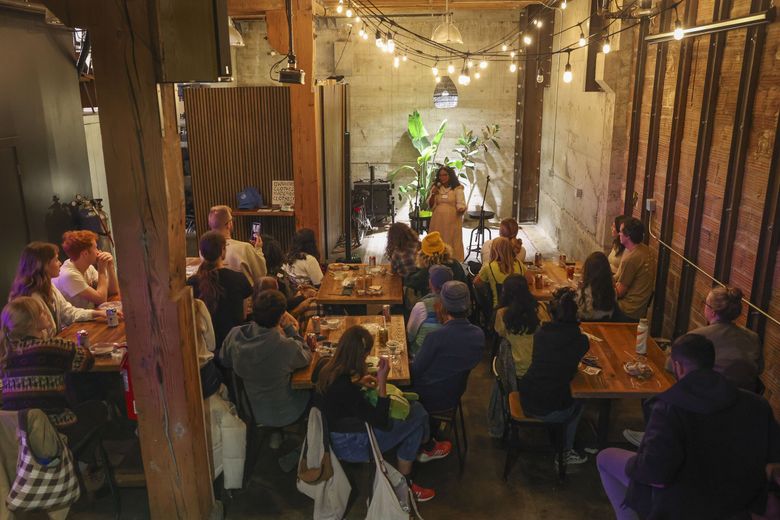
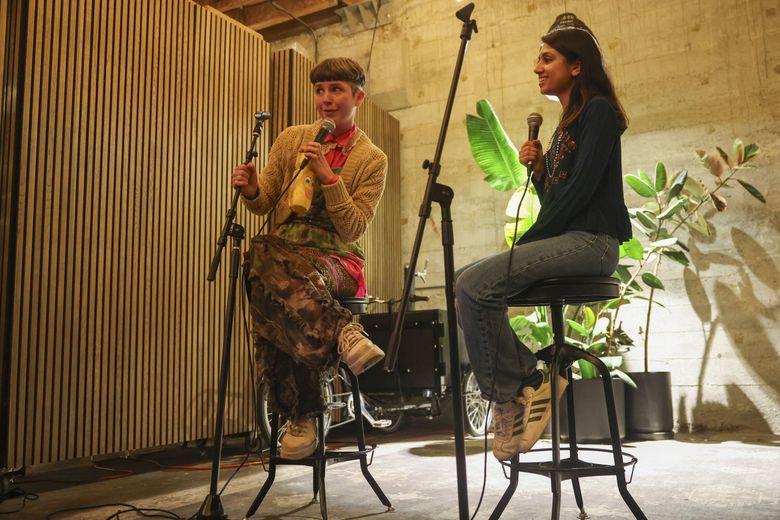
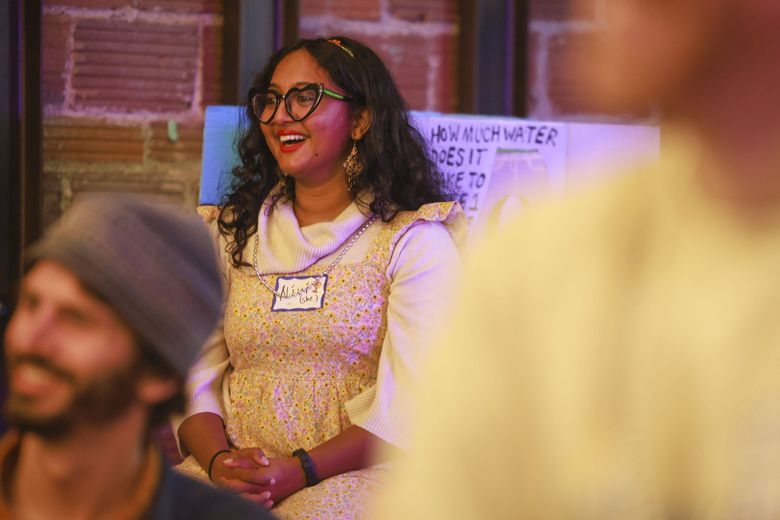
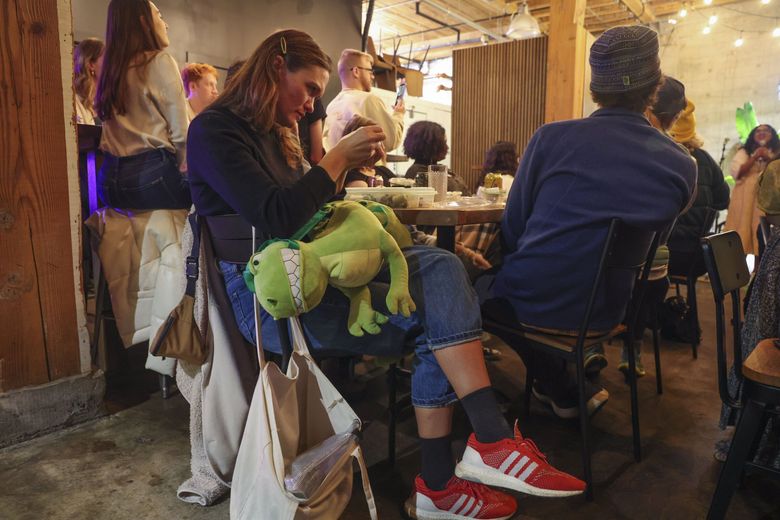
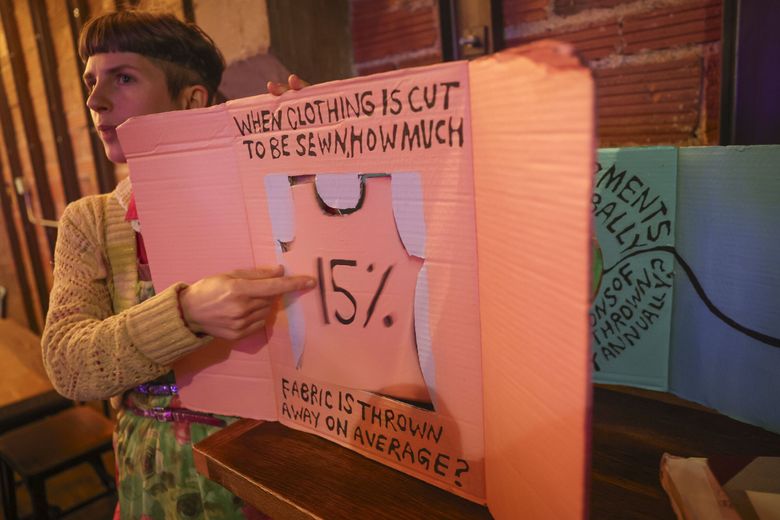
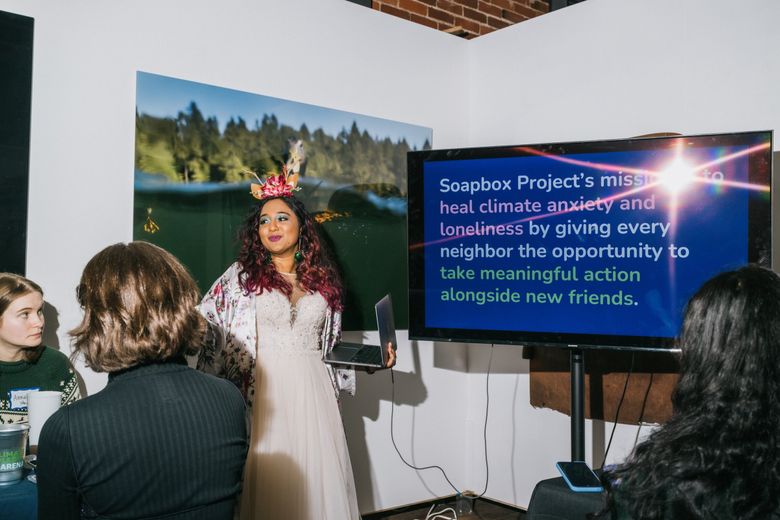
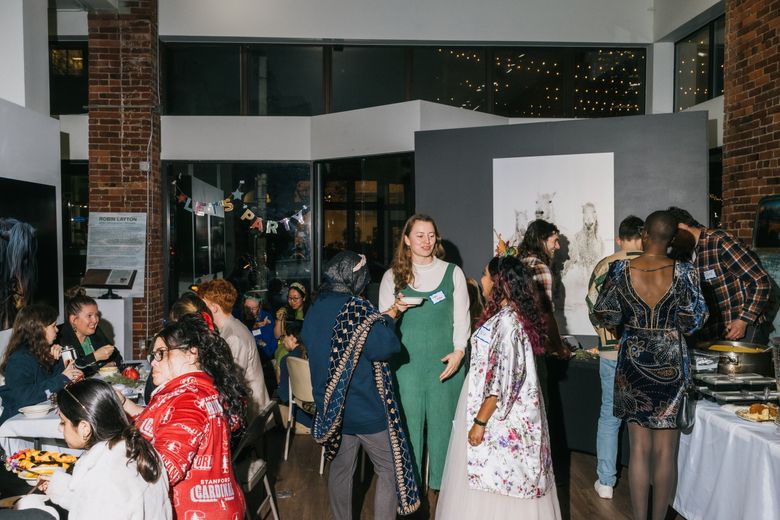




The opinions expressed in reader comments are those of the author only and do not reflect the opinions of The Seattle Times.